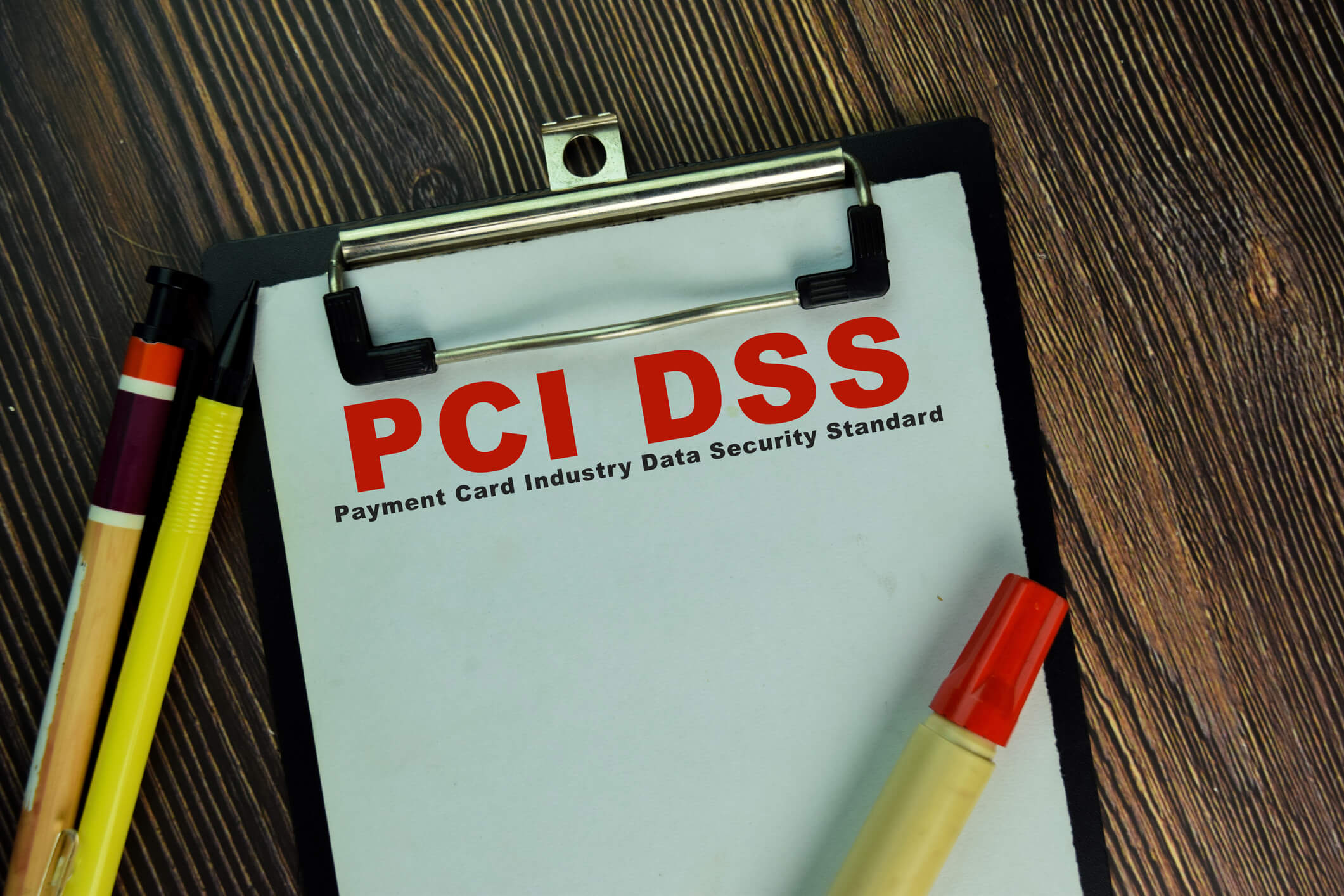
By Cindy Gardea August 20, 2024
In today’s digital age, credit repair businesses play a crucial role in helping individuals improve their credit scores and financial well-being. As these businesses handle sensitive customer information, it is imperative that they prioritize the security and protection of cardholder data. This is where Payment Card Industry Data Security Standard (PCI DSS) compliance comes into play.
In this article, we will explore the importance of PCI compliance in the credit repair industry, its key requirements, best practices for securing payment card transactions, and the role it plays in building trust and credibility with customers.
What is PCI Compliance and Why is it Important for Credit Repair Businesses?
PCI compliance refers to the adherence to a set of security standards established by the Payment Card Industry Security Standards Council (PCI SSC). These standards are designed to ensure the secure handling, processing, and storage of cardholder data during credit card transactions. For credit repair businesses, PCI compliance is of utmost importance as it helps protect sensitive customer information, prevents data breaches, and maintains the trust of customers.
The Consequences of Non-Compliance with PCI Standards in the Credit Repair Industry
Non-compliance with PCI standards can have severe consequences for credit repair businesses. Firstly, non-compliant businesses are at a higher risk of data breaches, which can result in financial losses, reputational damage, and legal liabilities. Additionally, non-compliance can lead to hefty fines imposed by card brands and acquiring banks. These fines can range from thousands to millions of dollars, depending on the severity of the violation. Moreover, non-compliant businesses may face increased scrutiny from regulatory bodies, leading to further legal complications and potential business closure.
Key Requirements for Achieving and Maintaining PCI Compliance in Credit Repair
To achieve and maintain PCI compliance, credit repair businesses must adhere to several key requirements outlined by the PCI SSC. These requirements include:
- Build and Maintain a Secure Network: Credit repair businesses must install and maintain a firewall configuration to protect cardholder data. They should also change default passwords and security parameters to ensure a secure network environment.
- Protect Cardholder Data: Businesses must encrypt cardholder data during transmission and storage. This can be achieved through the use of secure protocols, encryption algorithms, and tokenization techniques.
- Maintain a Vulnerability Management Program: Regularly update and patch systems, applications, and software to protect against known vulnerabilities. Conduct regular vulnerability scans and penetration tests to identify and address any weaknesses in the network.
- Implement Strong Access Control Measures: Limit access to cardholder data to only authorized personnel. Assign unique IDs to individuals with computer access and regularly monitor and review access logs to detect any unauthorized activities.
- Regularly Monitor and Test Networks: Implement a system for monitoring and tracking all access to network resources and cardholder data. Conduct regular security testing and penetration testing to identify and address any vulnerabilities.
- Maintain an Information Security Policy: Develop and maintain a comprehensive information security policy that addresses all aspects of PCI compliance. This policy should be communicated to all employees and regularly reviewed and updated.
Implementing Security Measures to Protect Cardholder Data in Credit Repair Operations
To protect cardholder data, credit repair businesses must implement various security measures. These measures include:
- Encryption: Encrypting cardholder data during transmission and storage ensures that even if intercepted, the data remains unreadable and unusable to unauthorized individuals.
- Tokenization: Tokenization replaces sensitive cardholder data with a unique identifier or token. This ensures that even if the token is intercepted, it cannot be used to retrieve the original cardholder data.
- Secure Payment Processing Systems: Credit repair businesses should use secure payment processing systems that comply with PCI standards. These systems should have built-in security features and undergo regular security audits.
- Employee Training and Awareness: Training employees on the importance of PCI compliance and best practices for handling cardholder data is crucial. Regular training sessions and awareness programs help employees understand their responsibilities and reduce the risk of human error.
Best Practices for Securing Payment Card Transactions in the Credit Repair Industry
To ensure the secure handling of payment card transactions, credit repair businesses should follow these best practices:
- Use Secure Payment Gateways: Utilize secure payment gateways that encrypt cardholder data during transmission. These gateways should be PCI compliant and regularly audited for security.
- Implement Two-Factor Authentication: Require two-factor authentication for accessing payment systems and sensitive cardholder data. This adds an extra layer of security by verifying the identity of the user.
- Regularly Update Software and Systems: Keep all software, systems, and applications up to date with the latest security patches and updates. Outdated software can contain vulnerabilities that can be exploited by hackers.
- Monitor and Analyze Network Traffic: Implement network monitoring tools to detect any suspicious activities or anomalies in network traffic. Analyzing network logs and traffic patterns can help identify potential security breaches.
- Secure Physical Access to Cardholder Data: Restrict physical access to areas where cardholder data is stored or processed. Use access control systems, surveillance cameras, and secure storage facilities to prevent unauthorized access.
The Role of PCI Compliance in Building Trust and Credibility with Customers
PCI compliance plays a vital role in building trust and credibility with customers in the credit repair industry. When customers entrust their sensitive cardholder data to a credit repair business, they expect that their information will be handled securely and confidentially. By achieving and maintaining PCI compliance, businesses demonstrate their commitment to protecting customer data and maintaining the highest security standards. This builds trust and confidence among customers, leading to long-term relationships and positive word-of-mouth referrals.
Common Challenges and Solutions in Achieving PCI Compliance for Credit Repair Businesses
Achieving PCI compliance can be challenging for credit repair businesses, especially those with limited resources and technical expertise. Some common challenges include:
- Lack of Awareness: Many credit repair businesses may not be fully aware of the importance and requirements of PCI compliance. Educating business owners and employees about PCI standards is crucial in overcoming this challenge.
- Cost of Compliance: Implementing the necessary security measures and infrastructure to achieve PCI compliance can be costly. However, the cost of non-compliance, including fines and reputational damage, far outweighs the initial investment.
- Complexity of Requirements: The technical and operational requirements of PCI compliance can be complex and overwhelming. Engaging the services of a qualified PCI compliance provider or consultant can help businesses navigate these requirements effectively.
- Keeping Up with Evolving Threats: The threat landscape is constantly evolving, and new vulnerabilities and attack vectors emerge regularly. Credit repair businesses must stay updated with the latest security practices and technologies to address these evolving threats.
Frequently Asked Questions (FAQs)

Q.1: What is PCI compliance?
PCI compliance refers to the adherence to a set of security standards established by the Payment Card Industry Security Standards Council (PCI SSC). These standards are designed to ensure the secure handling, processing, and storage of cardholder data during credit card transactions.
Q.2: Why is PCI compliance important for credit repair businesses?
PCI compliance is important for credit repair businesses as it helps protect sensitive customer information, prevents data breaches, and maintains the trust of customers.
Q.3: What are the consequences of non-compliance with PCI standards?
Non-compliance with PCI standards can result in data breaches, financial losses, reputational damage, legal liabilities, and hefty fines imposed by card brands and acquiring banks.
Q.4: What are the key requirements for achieving and maintaining PCI compliance in credit repair?
The key requirements for achieving and maintaining PCI compliance in credit repair include building and maintaining a secure network, protecting cardholder data, maintaining a vulnerability management program, implementing strong access control measures, regularly monitoring and testing networks, and maintaining an information security policy.
Q.5: How can credit repair businesses protect cardholder data?
Credit repair businesses can protect cardholder data by implementing encryption and tokenization techniques, using secure payment processing systems, providing employee training and awareness, and following best practices for securing payment card transactions.
Conclusion
In the credit repair industry, PCI compliance is not just a legal requirement but also a crucial aspect of maintaining the trust and confidence of customers. By adhering to PCI standards, credit repair businesses can protect sensitive cardholder data, prevent data breaches, and avoid the severe consequences of non-compliance.
Implementing security measures, following best practices, and overcoming common challenges are essential steps towards achieving and maintaining PCI compliance. Ultimately, PCI compliance helps build trust and credibility with customers, leading to long-term success in the credit repair industry.
